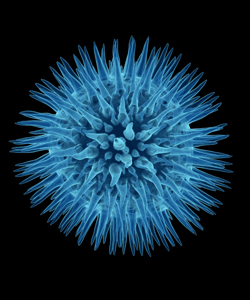Water urged to fight superbug breeding
 Experts say the water industry must get involved in the fight against “superbugs”, as the waste of modern medicine becomes a brand new health risk.
Experts say the water industry must get involved in the fight against “superbugs”, as the waste of modern medicine becomes a brand new health risk.
Waste water worldwide is polluted with leftover drugs deposited along with human waste.
This provides perfect breeding grounds for drug-resistant bacteria and their genes.
Partially degraded drugs and ointments can convert back into an active form through chemical reactions in their new environmental home, so the combination of bugs and drugs work together to create potentially dangerous new breeds
Water treatment plants are often the only barrier stopping drug residues and other synthetic chemicals getting into soils and waterways, and experts say this line of defence needs to be bolstered.
Professor of infectious diseases and microbiology at Australian National University, Dr Peter Collignon, outlined the issue and made a call to action in a recent article for The Conversation.
“Australia should build on its reputation for innovation in water management by addressing this health issue,” Dr Collignon writes.
“The water industry should aim to ensure that treatment plants are operating under optimal conditions and that the older ones are either replaced or upgraded.
“Where appropriate, the industry could also help hospitals with in-house waste treatment, and suggest ways for householders to dispose of unwanted drugs – perhaps along the lines of Orange County’s No Drugs Down the Drain” campaign.
“Water firms should discourage hospital staff from emptying half-empty syringes into wash basins (which is probably common despite being against protocols),” he added.








 Print
Print